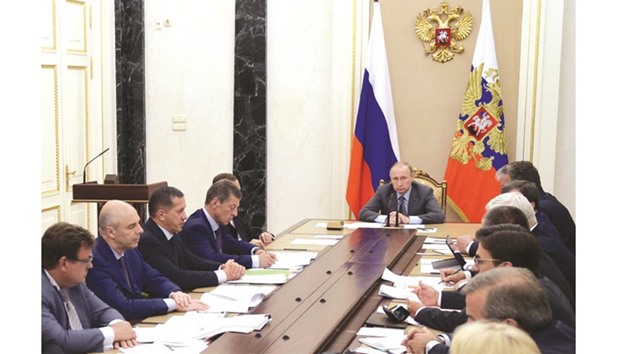The International Olympic Committee reported 45 new doping failures yesterday from the 2008 Games in Beijing and London 2012, bringing the total number of positive drug tests to 98 since a retesting programme was launched.
The IOC, facing one of its worst ever doping crises that could see sporting powerhouse Russia banned from the Rio Games, has reanalysed more than 1,200 samples, with the emphasis on past medal winners.
Reporting results from its second wave of retests, the IOC said there were 30 “Provisional Adverse Analytical Findings” from competitors in Beijing 2008 and 15 “Adverse Analytical Findings” among London 2012 Olympians.
Within the Beijing group, 23 were medallists. The 30 positive results came from eight countries and four sports.
The second wave of retests from London included 138 samples. The 15 positive tests were from nine countries and two sports.
The IOC noted however that a provisional finding can be reversed on closer examination. Two provisional positives from the first wave of Beijing tests announced in May were ultimately not deemed conclusive.
“The new reanalysis once again shows the commitment of the IOC in the fight against doping,” Olympics president Thomas Bach said in a statement.
The IOC has said the retesting programme followed “intelligence-gathering” that began last year.
The IOC was not able to identify the athletes concerned, citing legal reasons. The individuals, national Olympic committees and sports federations have been privately informed, however, the IOC added.
“All athletes found to have infringed the anti-doping rules will be banned from competing (in Rio),” the statement continued.
The third and fourth rounds of re-analysis will be carried out during after the Games in Brazil, which start in two weeks.
Following the first wave of retests, Russia admitted that eight of its athletes from London 2012 were implicated. The new results may pile more pressure on the IOC as it faces making the unprecedented move of banning an entire country from a Games over doping.
Two reports from the World Anti Doping Agency have detailed rampant, state-run drug cheating by Russia, affecting 30 sports. Russia’s track and field team has already been banned from Rio by governing body IAAF.
But a dozen global anti-doping agencies and several national Olympic committees have urged the IOC to take exemplary action and rule all Russian competitors ineligible for the Rio.
Immediately after the latest revelations, Russia made a last-ditch bid to avoid a blanket ban at the Rio Games.
Russia is a sporting powerhouse whose absence from Rio would create the biggest crisis in decades for the Olympic movement and President Vladimir Putin launched a final push to avert a ban.
“The official position of the Russian authorities — the government, the president and all of us — is that in sport there is not and can be no place for doping,” Putin told government ministers.
“To do this, it is obligatory to cooperate as closely as possible with the disciplinary committee of the International Olympic Committee, the World Anti-Doping Agency and the international sports federations,” he said.
Fourteen national anti-doping agencies including the United States, Canada and Germany sent a joint letter to IOC President Thomas Bach on Thursday urging him to ban Russia from Rio.

Russian President Vladimir Putin chairs a meeting with members of the government at the Kremlin in Moscow yesterday. President Vladimir Putin insisted Russia was committed to wiping out doping in a last-ditch push to avoid a possible blanket ban from the Rio Games over state-run dope cheating. The IOC’s executive board are to hold a conference call tomorrow to discuss barring Russia from the Rio Games that start on August 5
